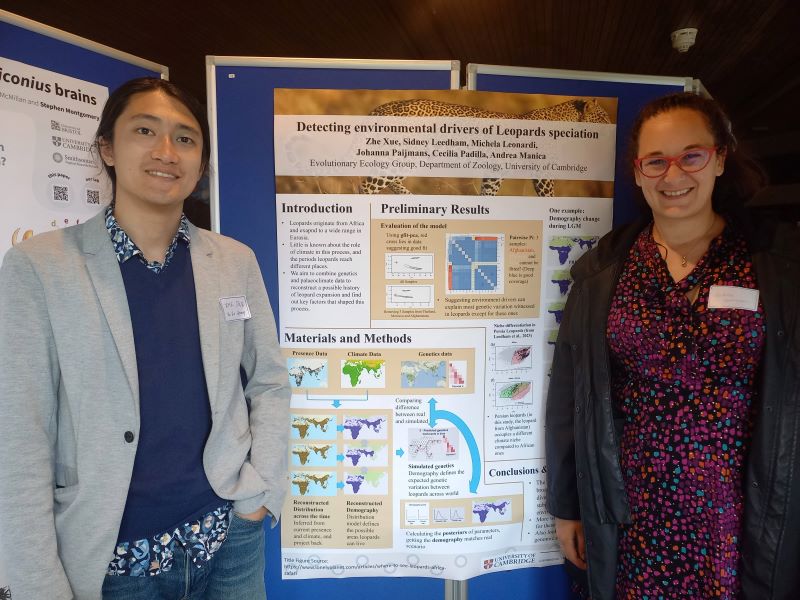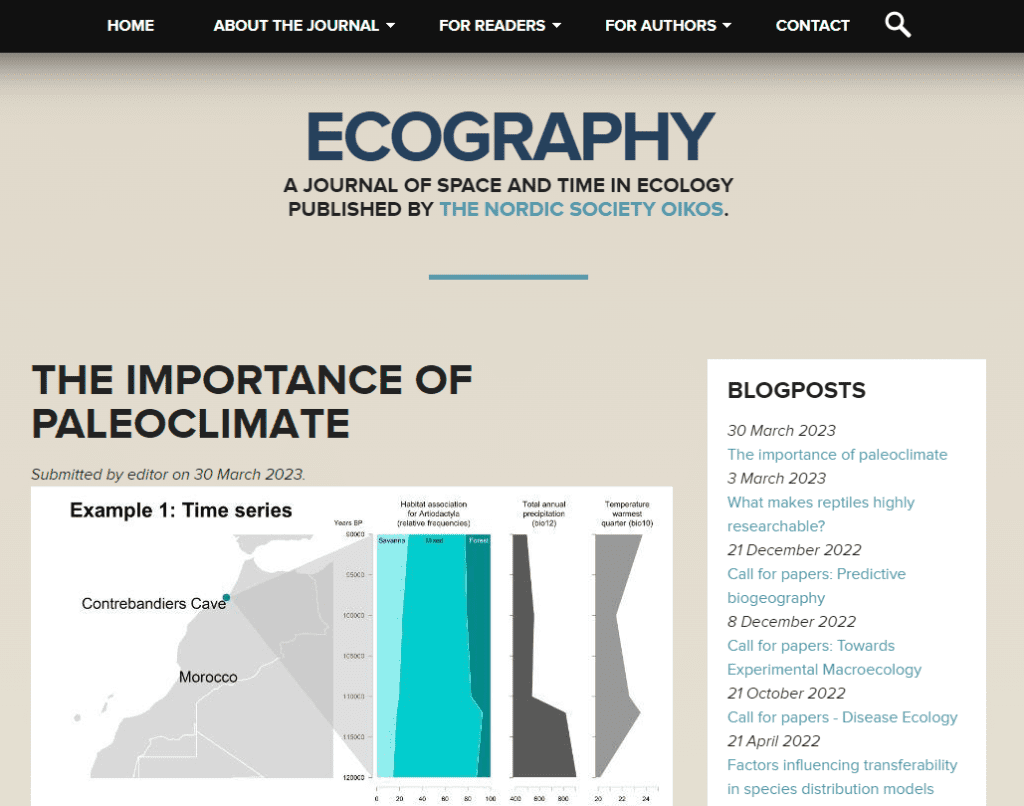This year, for Department Day, our PhD student Zhe Xue presented a poster on his work on leopards. It’s always great to see something you have contributed to being presented publicly!

Zhe’s project builds on the work of Sidney Leedham, our former Part-II student who performed ecological analyses of different leopard subspecies (you can read more here).





